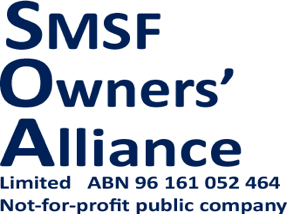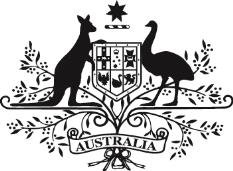From the desk of Brett Hogan, Director of Research
16th September 2016
Manager
Superannuation Tax Reform
Retirement Income Policy Division
The Treasury
Langton Crescent
PARKES ACT 2600
SUBMISSION ON EXPOSURE DRAFT OF SUPERANNUATION LEGISLATION
Dear Sir / Madam.
On behalf of the Institute of Public Affairs, please find enclosed this submission on the
Exposure Draft of the Australian Government’s:
- Superannuation (Objective) Bill 2016;
- Treasury Laws Amendment (Fair and Sustainable Superannuation) Bill 2016; and
- Treasury Laws Amendment (Fair and Sustainable Superannuation) Regulation 2016.
Given the limited time available for consultation, this submission will take the form of a letter
and concentrate on the proposed new objective of the superannuation system.
1. Introduction and Budgetary Context
Superannuation lies at the heart of important national policy questions about taxes, spending,
personal responsibility and the role of government.
Almost a quarter of a century after the introduction of compulsory superannuation, four out
of five Australians do not have enough savings to fully fund their retirement.
Yet rather than identify new ways to encourage all Australians to put more money into their
retirement accounts, the bipartisan approach of national policy makers is to treat the $2
trillion worth of private superannuation funds as just another source of taxation revenue.
The Institute of Public Affairs considers that for all the talk of ‘fairness’ and desire to rein in
so-called ‘tax concessions,’ it is out-of-control government spending and the desire to
increase taxation revenue that is driving these changes.
Australian Government spending has increased 1 from $271 billion per year in 2007-08 or
23.1% of Gross Domestic Product (GDP), to $445 billion in 2016-17 or 25.8% of GDP.
1 Australian Government, Budget Paper No.1:Budget Strategy and Outlook 2016-17, p 10-5
In 2019-20, spending is expected to pass $500 billion for the first time. So while it took 107
years for federal government spending to reach $271 billion it will take only another twelve
years to reach $500 billion and according to trend a total of only fourteen years to double it to
$542 billion.
Additionally, sometime shortly after 30 June 2017, Australian Government Gross Debt is
expected to pass $500 billion for the first time. Gross debt on 30 June 2007 was only $53.2
billion. 2
The Government should not seek to resolve these imbalances by raising taxes to ‘chase
spending,’ as former Treasurer Peter Costello was recently quoted as saying. 3
2. Recent Proposed Changes
On Budget Night, 3 May 2016, the Australian Government announced a swathe of new
changes to the taxation and regulatory treatment of superannuation, designed to raise $2.9
billion net over four years.
While most of these changes are not the subject of this consultation, the Institute of Public
Affairs would like to formally put on the public record its opposition to:
- reducing the threshold for the 30% contributions tax from $300,000 per year to
$250,000 per year; - reducing the pre-tax contributions limits from $30,000 and $35,000 to $25,000 per
year; - limiting the amount of money that can be transferred into a retirement account to $1.6
million; and - introducing a new $500,000 lifetime post-tax contributions limit backdated to 2007
(subsequently replaced on 15 September 2016 with a $100,000 per year limit).
Restrictions on the amount of money that can be transferred into, or remain within, retirement
accounts, undermine the ability of the system to provide comfortable retirement incomes.
3. Primary Objective of Superannuation
In his Budget Speech on 3 May, the Treasurer said that “becoming financially independent in
retirement, free of welfare support, is one of life’s great challenges and achievements.” 4
The Institute of Public Affairs wholeheartedly agrees.
However, notwithstanding this philosophically sound statement, the Treasurer that evening
issued a joint Media Release with then Assistant Treasurer Kelly O’Dwyer to announce that
2 Ibid. p 10-13 3 The Australian, “Peter Costello’s Blast: Liberal Party Lacks Clear Vision,” 10 September 2016,
http://www.theaustralian.com.au/news/nation/peter-costellos-blast-liberal-party-lacks-clear-vision/newsstory/3e8974f875d3f85873eb2fb8d73a5c5d, Viewed 16 September 2016
4 Hon. Scott Morrison MP, 2016 Budget Speech, http://www.budget.gov.au/2016-17/content/speech/html/speech.htm,
Viewed 16 September 2016
the Government would “enshrine in law that the objective for superannuation is to provide
income in retirement to substitute or supplement the Age Pension.” 5
Tellingly, this Release also noted that the proposed objective “has been an important anchor
for the development of the superannuation changes included in the Budget.”
According to sections 4 and 5 of the Exposure Draft 6 of the Superannuation (Objective) Bill
2016, in fact the Government is proposing that this is now to be the ‘primary objective’ of the
superannuation system.
Section 6 states that any subsequent legislation relating to superannuation that is introduced
to Parliament must include “an assessment of whether the Bill is compatible with the primary
objective of the superannuation system.”
Contained within the Exposure Draft Explanatory Materials 7 for the two Draft Bills is a set
of five proposed so-called ‘subsidiary objectives,’ which are worth highlighting:
- facilitate consumption smoothing over the course of an individual’s life;
- manage risks in retirement;
- be invested in the best interests of superannuation fund members;
- alleviate fiscal pressures on government from the retirement system; and
- be simple, efficient and provide safeguards.
While the Government appears to have adopted the primary and subsidiary objectives from
the Final Report of the 2014 Financial System Inquiry (FSI),8 it is noteworthy that the FSI
actually made six subsidiary objective recommendations, with the Government choosing to
leave out that the system:
- be fully funded from savings.
In referring to this objective in its Final Report, the FSI said that:
“A fully funded system, as opposed to an unfunded system, is important for sustainability and
stability. The system is designed to be predominantly funded by savings from working life
income and investment earnings, where superannuation fund members in general have claims
on all assets in the fund.”
Concepts such as facilitating consumption smoothing, investing in the best interests of
members and managing risks in retirement, let alone that the system be fully funded from
savings, actually make a lot more sense than the proposed primary objective ‘to substitute or
supplement the Age Pension.’
5 Hon. Scott Morrison MP & Hon. Kelly O’Dwyer MP Joint Media Release, “A More Sustainable Superannuation System,”
3 May 2016, http://sjm.ministers.treasury.gov.au/media-release/053-2016/, Viewed 16 September 2016
6 Superannuation (Objective) Bill 2016 Exposure Draft, https://consult.treasury.gov.au/retirement-income-policydivision/superannuation-reform-package/supporting_documents/Exposure_Draft_Superannuation_Objective_Bill.pdf,
Viewed 16 September 2016
7 Exposure Draft Explanatory Materials, https://consult.treasury.gov.au/retirement-income-policy-division/superannuationreform-package/supporting_documents/Exposure_draft_Explanatory_Memorandum_Superannuation_Tranche_1.pdf, Viewed 16 September 2016
8 Commonwealth of Australia, Financial System Inquiry Final Report, November 2014,
http://fsi.gov.au/files/2014/12/FSI_Final_Report_Consolidated20141210.pdf, Viewed 16 September 2016
Yet it is the proposed primary objective that will be reference point for the superannuation
system, and against which all subsequent proposals for change will be judged.
It is of the gravest concern that maximising personal income in retirement is not deemed to be
the primary, or even a subsidiary, objective of the system.
The OECD has found 9 that the net pension replacement rate for average income earners in
Australia is only 58 per cent (53.4 per cent for women) when the generally accepted benchmark is 70 or 80 per cent.
Australia’s 2014 National Commission of Audit reported that 10 the proportion of retirees on
a full or part pension was expected to remain at around 80 per cent over the next three
decades.
According to the Government’s own Budget Papers, 11 the cost of ‘Income Support for
Seniors’ was $43.2 billion in 2015-16 and is projected to reach $51.8 billion just four years
later.
Superannuation initiatives that are implemented under the auspices of the proposed primary
objective are unlikely to help middle-income earners to significantly boost their income in
retirement or to allow large numbers of Australians to move off the full or part Age Pension.
Instead of proposing that the goal of the superannuation system is merely to take the place of
or top up the Age Pension, the aim should be to maximise the retirement incomes of all
Australians, and reduce dependence on welfare payments.
To this end, the Institute of Public Affairs would like to offer an alternative Primary
Objective for the superannuation system:
“The objective of the superannuation system is to ensure that as many Australians as
possible take personal responsibility for funding their own retirement. The Age Pension
provides a safety net for those who are unable to provide for themselves in retirement.”
The Institute of Public Affairs is happy to support the adoption of all six of the FSI’s
subsidiary objectives, if the primary objective is so amended.
Given that a bad objective is worse than no objective at all, the second-best option would be
to make no change.
9 Organisation for Economic Co-operation and Development, Pensions at a Glance 2015, http://www.oecd.org/publications/oecd-pensions-at-a-glance-19991363.htm, Viewed 16 September 2016
10 Australian Government, National Commission of Audit 2014, Chapter 7.1: Age Pension, http://www.ncoa.gov.au/report/phase-one/part-b/7-1-age-pension.html, Viewed 16 September 2016
11 Australian Government, Budget Paper No.1:Budget Strategy and Outlook 2016-17, p 5-26
4. Timing of this Consultation
It is disappointing that the Government has allowed only nine days between the release of the
draft legislation (Wednesday 7 September) and the close of submissions (Friday 16
September).
We note that the formal consultation period on proposed changes to the Working Holiday
Maker Visa Scheme (also known as the Backpacker Tax) ran from mid-August to mid-
September, which would have assisted that review to receive over 1,700 submissions. 12
Considering the important retirement incomes, taxation, welfare and social policy issues that
are involved here, a longer period would have resulted in additional, and more detailed,
responses.
5. Segregating Consultation on the Objectives from Substantive Proposals
We also question segregating public consultation on the proposed new superannuation system
objective from the arguably more contentious tax increases and contributions limits.
While we understand that the discussions that had been taking place within the Liberal and
National Parties may have delayed formal public consultation on the substantive proposals,
given that the whole package was developed and initially announced at the same time, the
Government should have delayed consultation on the objective as well.
6. Future Changes
If the objective of the nation’s superannuation system is merely to provide income in
retirement to substitute or supplement the Age Pension, then the taxation and regulatory
proposals announced in the 2016 Budget and amended on 15 September are only the beginning.
Once the principle has been established that superannuation taxes can be increased to pay for
government spending, that all major parties have voted for it, and that it doesn’t even
contradict the objectives of the system, then there will be no stopping future governments.
Kind regards,
Brett Hogan
Director of Research
12 Australian Government, Department of Agriculture and Water Resources website, “Working Holiday Maker Visa Review,” http://www.agriculture.gov.au/ag-farm-food/working-holiday-maker-review/submissions, Viewed 16 September 2016

 15 September 2016
15 September 2016



